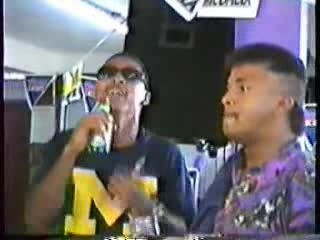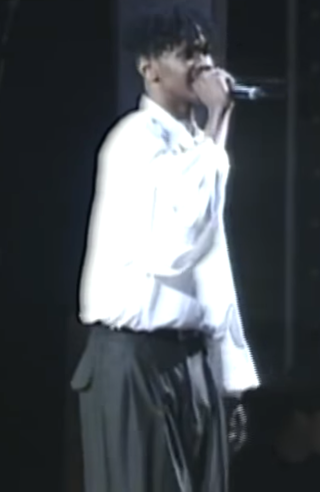The music of Latin America refers to music originating from Latin America, namely the Romance-speaking regions of the Americas south of the United States. Latin American music also incorporate the Indigenous peoples of the Americas. Due to its highly syncretic nature, Latin American music encompasses a wide variety of styles, including influential genres such as cumbia, bachata, bossa nova, merengue, rumba, salsa, samba, son, and tango. During the 20th century, many styles were influenced by the music of the United States giving rise to genres such as Latin pop, rock, jazz, hip hop, and reggaeton.

The Music of Puerto Rico has evolved as a heterogeneous and dynamic product of diverse cultural resources. The most conspicuous musical sources of Puerto Rico have primarily included European, Indigenous, and African influences, although many aspects of Puerto Rican music reflect origins elsewhere in the Caribbean. Puerto Rican music culture today comprises a wide and rich variety of genres, ranging from essentially native genres such as bomba, danza, and plena to more recent hybrid genres such as salsa, Latin trap and reggaeton. Broadly conceived, the realm of "Puerto Rican music" should naturally comprise the music culture of the millions of people of Puerto Rican descent who have lived in the United States, especially in New York City. Their music, from salsa to the boleros of Rafael Hernández, cannot be separated from the music culture of Puerto Rico itself.
Panama is a Central American country, inhabited mostly by mestizos. The music of Panama is heavily based on the folk music of Spain, particularly that of Andalusia and was influenced first by the indigenous populations of Kunas, Teribes, Ngobe Bugle and others, and then by the black population who were brought over, first as slaves from Africa, between the 16th century and the 19th century, and then voluntarily to work on the Panamanian Railroad and Canal projects between the 1840s and 1914.

Reggaeton, also known as reggaetón and reguetón, is a style of popular and electronic music that originated in Panama during the late 1980s. It was later popularized in Puerto Rico.
The Music of Nicaragua contains a mixture of European, Indigenous, and African influences. Occasionally, it also rarely features Asian and Arab musical influences as well as from other countries of Hispanic and Latino origin. Musical instruments include the marimba and others that are common across Central America. Pop music includes performers from all around the world including Nicaraguans, Cubans, Brazilians, Mexicans, Panamanians, as well as those from Europe and the United States.
There are several subgenres of reggae music including various predecessors to the form.

Martha Ivelisse Pesante Rodríguez, known professionally as Ivy Queen, is a Puerto Rican singer, rapper, songwriter, and actress. She is considered one of the pioneers of the reggaeton genre, commonly referred to as the Queen of Reggaeton.

Edgardo Armando Franco, better known as El General, is a Panamanian former reggae artist considered by some to be one of the fathers of "Reggae en Español". During the early 1990s, he was one of the artists who initiated the Spanish-language dancehall variety of reggae music. Early examples of this were the international and somewhat mainstream songs, "Te Ves Buena" and "Tu Pum Pum". “Tu Pum Pum" emerged after a friend of El General invited him to collaborate with a Jamaican producer that was searching for a “different sound in Panama." Both songs, performed in Spanish deejaying style, were very successful in North America. After getting his foot in the door of the commercial market, many other Spanish-language dancehall reggae artists became famous in the mainstream as well. He has a unique, easy to listen to style of dance music and has produced many well-known songs all over Latin America. This style is called reggae en Español, because he makes dancehall reggae music with Spanish-language lyrics. El General retired in 2004 and became one of Jehovah's Witnesses.

Rock en español is a term used to refer to any kind of rock music featuring Spanish vocals. Compared to English-speaking bands, very few acts reached worldwide success or between Spanish-speaking countries due to a lack of promotion. Despite rock en español's origins in the late 1950s, many rock acts achieved at best nationwide fame until the Internet consolidated the listeners. However, some rock en español artists did become internationally popular with the help of a promotional campaign from the mid-1980s to the mid-1990s called "Rock en tu idioma". Some specific rock-based styles influenced by folkloric rhythms have also developed in these regions. Some of the more prominent styles are Latin rock ; Latin alternative, an alternative rock scene that blended a Latin sound with other genres like Caribbean ska, reggae, and soca; or Andalusian rock, a flamenco-influenced style that emerged in Spain.
Bachatón is a fusion genre of reggaeton from Puerto Rico as well as bachata from the Dominican Republic. Bachaton combines bachata melodies and reggaeton style beats, lyrics, rapping, and disc jockeying. As it is implied by the genre name, the word "bachatón" is a combination of "bachata" and "reggaeton". "Bachatón" was coined and widely accepted in 2005. It is a subgenre of reggaeton and bachata.

Los Rabanes is a Latin Grammy winning ska rock fusion band from Chitré, Herrera, Panama. With a career spanning two decades and eight albums, they are considered pioneers in the region, and are the first band from Central America to win a Latin Grammy in the Best Rock Album Category.

Iván Vladimir Banista, better known as El Roockie or The Roockie is a Panamanian reggae recording artist, currently signed to Luny Tunes' Mas Flow Inc. He is widely praised for his powerful and delivering lyrics, earning him the nickname 'King of Lyrics' and 'Maquina de Lirica'.
In Panama, dancehall reggae sung in Spanish language by artists of Latin American origin is known as Reggae en Español. It originated in the late 1980s in Panama. Reggae en Español goes by several names; in Panama, it is called "La Plena panameña".
Alternative reggaeton is a subgenre of reggaeton that emerged from the reggaeton movement as a reaction to its repetitive and monotone dembow rhythm, and the predominant stereotypical gangsta content that became predictable. The result was a complex sound derived from world sounds, mainly rooted in other Latin American music based genres such as bomba, plena, salsa, bachata, merengue, cumbia, tango and other foreign influenced music such as alternative rock, rock en español and Latin alternative. Mixed with thoughtful lyricism guided by an anti-colonialism discourse, Latin American sociopolitical content, and racial pride, it gave listeners a smooth blend of danceable rhythms and intellectual dialogue.
Aldo Vargas, known by his stage name Aldo Ranks, is a Panamanian musician of reggae en Español. From 1992 to 1998, he was the most outstanding and youngest rapper in Panama, supported by producers such as El Chombo and DJ Pablito on albums such as Cuentos de la Cripta and La Mafia. Ranks later joined the label Panama Music.
The Billboard Latin Music Award for Reggaeton Album of the Year was an honor presented annually at the Billboard Latin Music Awards, a ceremony that recognizes "the most popular albums, songs, and performers in Latin music, as determined by the actual sales, radio airplay, streaming and social data that shapes Billboard's weekly charts." According to Billboard magazine, the category was "created in response to the growing number of charting titles from the genre" of reggaeton. Reggaeton is a genre that has its roots in Latin and Caribbean music. Its sound derived from the Reggae en Español in Panama.
Winston Alfaro Brown Jr., better known by his stage name Gaby, is a Panamanian Reggae en Español and Reggaeton singer and rapper. He is also known as El Meneaíto or El Meneíto. He is best known for his 1992 single "Meneaíto" which was a major hit record throughout South and Central America. Gaby left the music scene in 1998. However, he made a return in 2016. Gaby currently resides in Miami Florida.
Urbano music or Latin urban is a transnational umbrella category including many different genres and styles. As an umbrella term it includes latin pop, reggaeton, dancehall, dembow, urban champeta, funk carioca and Latin hip hop. The commercial breakthrough of this music took place in 2017. Artists in style collaborate transnationally and may originate from the United States, Colombia, Cuba, the Dominican Republic, Panama, Venezuela or other Spanish-speaking nations, as well as Portuguese-speaking Brazil.







